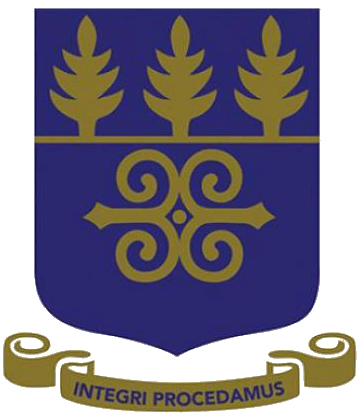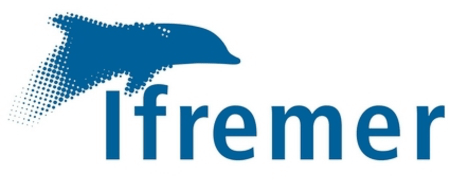Coastal Observing Lab in a Box (COLaB)
Overview
Background and rationale
Globally many countries face a significant hurdle in obtaining the necessary resources and knowledge to effectively monitor the coastal ocean. There is a common misconception that high end, expensive equipment is needed to monitor and study the coastal oceans. COLaB breaks this belief by using cost effective oceanographic instruments and methods backed by ocean best practices to collect a wide range of precise and accurate data. COLaB’s modularity allows the user to tailor the package to fulfil their needs and to assist answering their questions. Instruments will consist of essential hydrographic instruments (current meter, CTD) as well as equipment for collecting water samples and analysing crucial biogeochemical parameters (such as nutrients, chlorophyll, alkalinity, dissolved oxygen, etc.). It will also include plankton nets and other tools for conducting biological observations. In addition COLaB offers data handling and access solutions and downstream applications in the form of regional coastal modelling. Using various combinations of these packages, these observations have played a crucial role in monitoring eutrophication and harmful algal blooms, supporting fisheries management, establishing marine protected areas, and providing valuable validation and verification for models and remote sensing data. Whenever feasible, these packages will incorporate open-source or homemade sampling gear and instruments, both in the field and for analysis purposes. COLaB comes with training suitable for the needs of the user.
Global Context
By utilizing cost-effective methods and instruments, COLaB allows for broader participation and reduces barriers to entry in oceanographic research. COLaB helps address data gaps in coastal regions by enabling the collection of essential oceanographic data such as water quality parameters, currents, and biological observations. This data is crucial for understanding coastal processes, ecosystem health, and designing effective conservation strategies. By promoting accessibility, data collection, informed decision-making, and community involvement, low-cost oceanography in the coastal ocean contributes to sustainable coastal management, improved scientific understanding, and the protection of coastal ecosystems and resources on a global scale. The data and certain analysis will also be accessible globally and locally.
COLaB is run concurrently with the Ocean Best Practices task team for developing best practice documentation for coastal observations in under-resourced countries. This ensures data quality and reliability, enabling scientists and policymakers to make informed decisions based on robust and comparable information. The need for a COLaB package has been demonstrated through various workshops (I.e. Regional Training Workshop on observing the coastal and marginal seas in the western Indian Ocean, Mozambique, Geo Blue Planet in Ghana) and conferences (WIOMSA and Ocean Best Practices in October 2022) where participants from both resourced and under-resourced countries showed interest in using the COLaB package to conduct environmental monitoring.
Relevance to POGO and fit with POGO’s Strategy
A key component of COLaB is that the packages are co-designed with all stakeholders (instrument manufacturers, scientists, local communities etc.). The COLaB package will be supported by ongoing training and support from scientists and technicians around the world. COLaB contributes to capacity building and knowledge transfer by providing accessible tools and techniques. It enables training and skill development in coastal monitoring and research, particularly in regions where traditional oceanographic methods may be inaccessible due to cost or expertise limitations. COLaB is also working closely with open source instrumentation developers to develop a cost-effective CTD and water sampling package, Spectrophotometer and Sechii Disk with pH measurements. COLaB is a perfect fit with the POGO strategy as it advocates for capacity development in under-resourced countries, drives innovation for cost effective coastal ocean research and promotes advocacy in science by ensuring all data is collected using standardised methods.
The COLaB working group seeks to contribute to the capacity development of multidisciplinary coastal oceanographers while using innovative, cost efficient methods and instrumentation to better monitor and understand the global coastal ocean.
Work plan, deliverables and milestones
Should the proposal be accepted the funding will go towards hosting an in-person workshop for the COLaB PIs in September 2023, the rollout of the first COLaB pilot site in Ghana and the publication of a Bulletin of the American Meteorological Society Article advertising COLaB and its mission.
Through the publication of several newsletter articles we will highlight COLaBs capacity building efforts and advertise training programs for local scientists and technicians in low income countries. The newsletter articles will showcase efforts to empower local communities in conducting coastal observations and monitoring. These articles can also address the sustainable management of coastal ecosystems, emphasizing the importance of responsible practices and the mitigation of coastal hazards. They can raise awareness about the impacts of human activities on the ocean and highlight initiatives that promote sustainable food supply and ecosystem conservation.
COLaB and the Ocean Best Practices task team for Coastal Observations in Under-Resourced Countries will showcase how to best conduct coastal observations, share lessons learned. By sharing these articles they can inspire and guide other scientists and initiatives to follow internationally accepted best practices and encouraging collaboration and innovation.
| Milestones | Measure of success | Date to be reached | |
| 1 | In person workshop | Report from the meeting | 30/09/2023 |
| 2 | Bi-weekly virtual meetings | Meeting minutes | 31/12/2024 |
| 3 | Rollout of first pilot COLaB site | Newsletter articles for OBPS & POGO | 30/09/2024 |
| 4 | Bulletin of the American Meteorological Society Article | Article published in BAMS | 31/10/2024 |
Status: Complete Project
Year: 2023 - 2024
Project Participants
Leader
- Benjamin Osei Botwe, University of Ghana, Ghana
Participants
- Gregory Cowie, University of Edinburgh, UK
- Lucie Cocquempot, IFREMER, France
- Juliet Hermes, SAEON, South Africa
- Tommy Bornman, SAEON, South Africa
- Jethan d’Hotman, SAEON, South Africa
- Kacie Conrad, Fisheries and Oceans Canada, Canada
- Katherine Shaw, Fisheries and Oceans Canada, Canada
- Jerome Aucan, PCCOS, Pacific
- Katie Soapie, PCCOS, Pacific
- Andrew Thaler, Black beard biologic, USA
- Lon Porter, Wabash College, USA
- Bob Brewin, University of Exeter, UK
- Aneesh Lotliker, INCOIS India
- Patrick Gorringe, SMHI, Sweden
- Samuel Obeng, University of Ghana Department of Marine and Fisheries Sciences (MAFS), Ghana
- Bernardino Malauene, NMU, Mozambique
- Herminio Muamba, Politics of Mozambique, Mozambique
- Bennet Atsu Foli, University of Ghana Department of Marine and Fisheries Sciences (MAFS), Ghana
- Emmanuel Hanert, Louvain, Belgium
- Shelly-Ann Cox, Barbados Community College, Caribbean
- Jen Veitch, SAEON, South Africa
- Giles Fearon, SAEON, South Africa
- Kevin O’Brien, NOAA, USA
- Alexis Valauri-Orton, The Ocean Foundation, USA
- Virginie van Dongen-Vogels, AIMS, Australia
- Zulfikar Begg, PCCOS, Fiji


